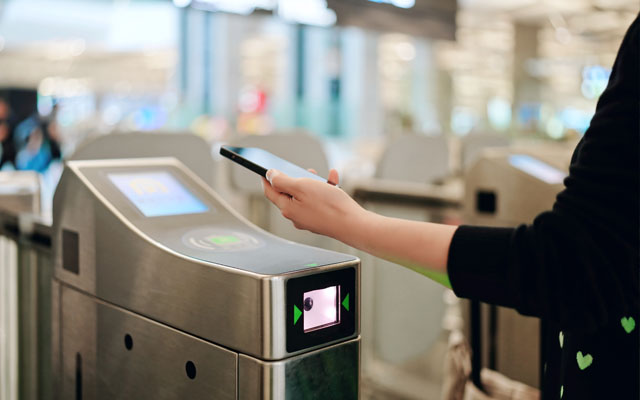Airports worldwide are increasingly adopting digital technologies that are changing how travellers move through terminals and how much they spend.
A recent global survey by Priority Pass, which included over 12,000 travellers from key Asia-Pacific markets such as Hong Kong, Australia, India, Indonesia, Singapore, South Korea, and Thailand, highlights the growing impact of automation on passenger behaviour and airport commerce.

The global airport automation market is expected to grow from US$55.05 billion in 2025 to USD$85.12 billion by 2033. The increase is attributed to changing passenger expectations and investment in digital infrastructure. Technologies such as biometric identification, real-time updates, and automated check-in and baggage handling are influencing traveller preferences and expenditure.
In the Asia-Pacific region, fast-track security (78%) and digital boarding passes (77%) were the most widely cited technologies impacting travel. Automated baggage drops (74%) and advanced security scanners (72%) also featured prominently.
68% of travellers in Asia-Pacific – including 77% of Gen Z and 73% of millennials – reported spending more at airports as a result of automation. This compares to a global average of 60%. Nearly half (48%) of travellers in the region said automation gives them an additional 10 to 30 minutes per journey, while 21% reported gaining up to an hour. This extra time is commonly spent on dining (58%), shopping (51%), or using airport lounges (46%). Around 31% of respondents said automation made them feel more relaxed, leading to greater discretionary spending.
Airport lounges and spending patterns
Lounge access remains a significant aspect of the airport experience in Asia-Pacific, where 80% of respondents said they had used a lounge at least once. Among lounge users, 73% said automation increased their airport spending, compared to 45% of non-users.
A separate study by analytics firm Fonto, commissioned by Collinson, found that Australian payment cardholders with Priority Pass spend 19% more annually than cardholders with access through other providers or without lounge access.
Travellers identified three preferred future developments in lounges: tech-enabled environments with tailored food, entertainment and workspaces (46%), seamless app-based bookings (42%), and sustainable lounge and wellness area design (41%). 67% of Asia-Pacific respondents said that lounge access through payment cards improved their airport experience.
Balancing automation and human support
While automation is generally viewed positively, travellers continue to value human interaction at key points. In Asia-Pacific, 69% of respondents believe the pace of AI and technology adoption in airports is appropriate. However, the study notes that human presence remains important during customer service interactions (66%), security procedures (53%), and lost property assistance (52%), where reassurance and clarity are often needed.
Looking ahead, travellers in Asia-Pacific expressed interest in standardised global security processes (45%), fully biometric travel (44%), and smart baggage tracking (43%).
As airports incorporate more technology, opportunities are increasing for service providers and brands to engage travellers. According to Priority Pass, aligning loyalty benefits with traveller preferences may enhance customer engagement within a changing airport environment.
Collinson International CEO Christopher Evans stated: “Automation is freeing up valuable time, lowering stress levels and providing better information, in real time to the traveller. When the experience delivers, travellers are more inclined to explore places to relax, sample dining options or retail stores. By integrating digital access to lounges and new airport experiences into the Priority Pass app, we’re creating more choice and opportunities for enhanced moments throughout the journey.”
“The dynamic Asia-Pacific region is home to some of the world’s busiest international airport hubs, with several airports investing significantly in expansion and modernisation of infrastructure to meet growing demand. The region is also leading the charge in adopting airport technology; in turn, setting new global standards for efficiency and traveller experience,” added Todd Handcock, global chief commercial officer and Asia Pacific executive chair at Collinson International.
He added that their research showed travellers in Asia-Pacific also place high value on “connection, trust and service alongside these innovations”.
The full report can be viewed here.





















